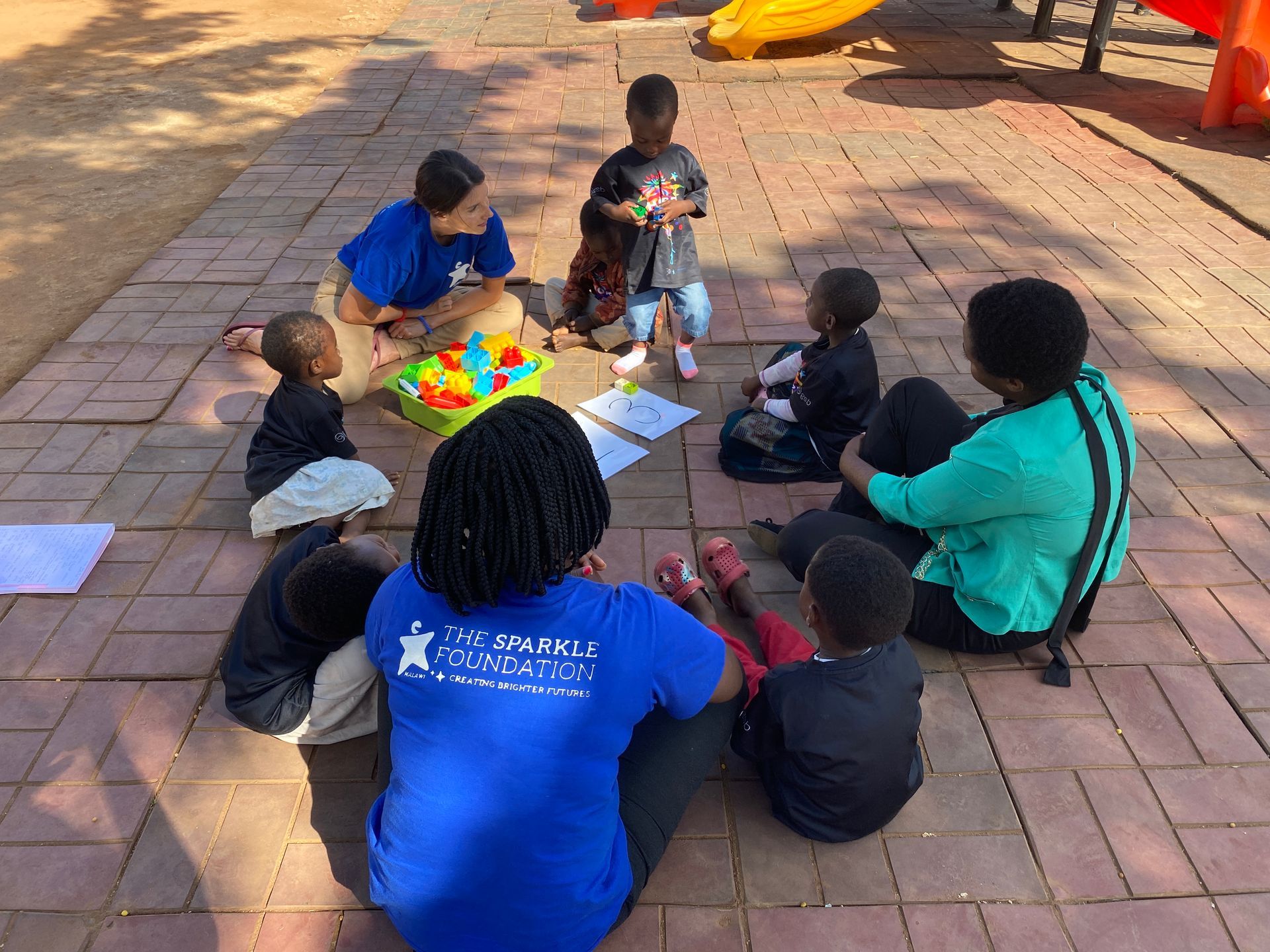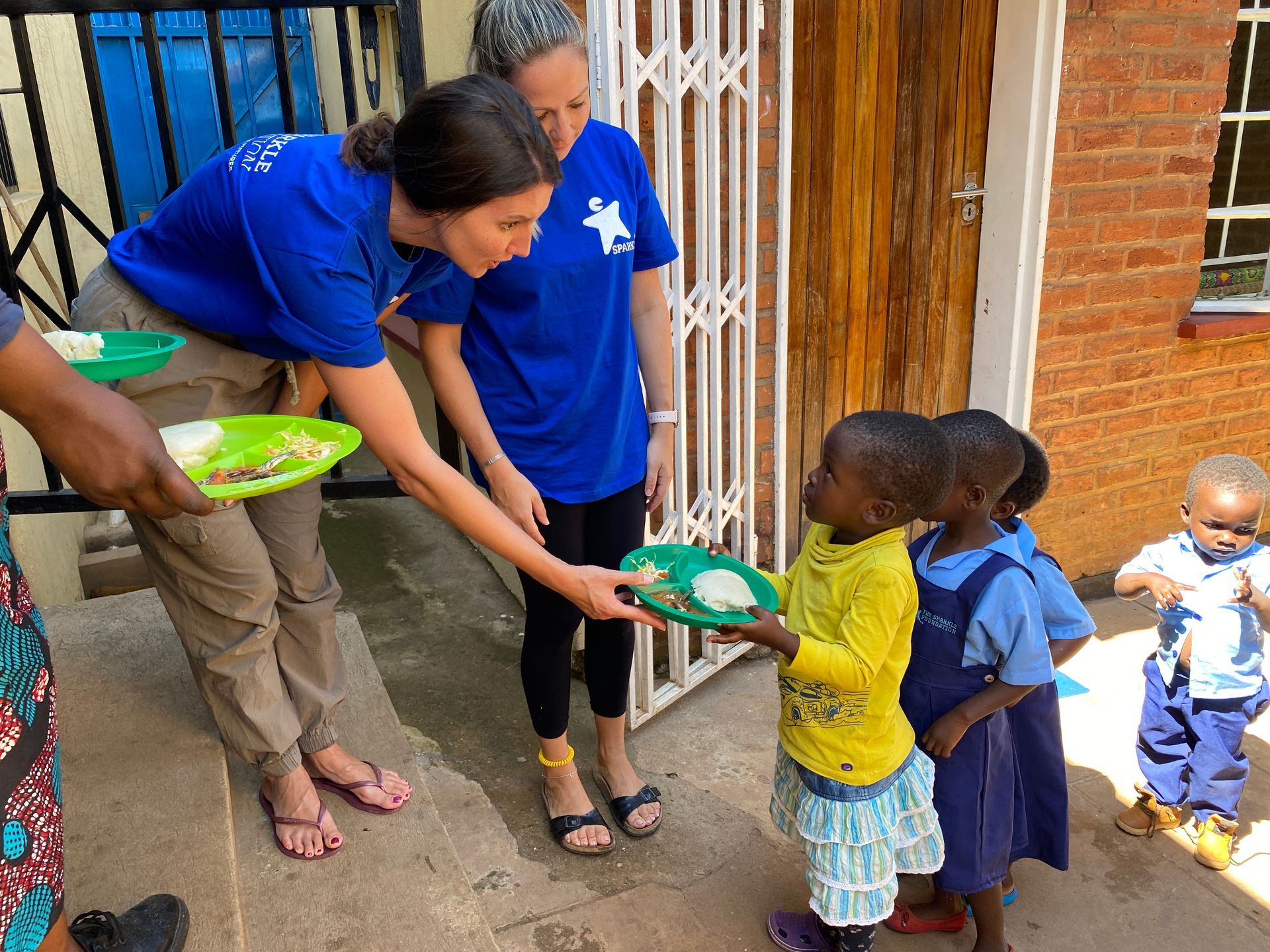As the sun rose over The Sparkle Foundation playground, I felt the first, of what I knew would be many, tears begin to well up in my eyes. Today marked our final day at The Sparkle Foundation, a school with a heart as vast and beautiful as the Malawian horizon. The alarm had woken us at 4:30am and fueled by our determination to make the most of every moment, my colleague Angelique Edmunds – the Queen of all things Early Years – and I wanted to surprise the teachers on our final day. With the help of Natasha Sampson, Sparkle’s Operating Director, we commenced our mission to reconfigure the four classrooms. We moved furniture between classrooms, fashioned reading nooks and building zones, uncovered hidden resources, and crafted writing stations. In just two hours, we transformed the classrooms into captivating environments where the children could engage in purposeful play, positively interacting with one another and the resources around them.
Inspired by the extraordinary Sparkle teaching team, we needed to express our gratitude for the uplifting experience they had given us. Observing their ability to reflect, adapt, and implement strategies and ideas overnight, to challenge and question assumptions, and to remain endlessly curious, we were awestruck by their dedication. Our previously limited (and frankly ignorant) perceptions of individuals living in houses with steel roofs and no running water, were shattered by the reality of the situation. The young staff, raised in what we would consider poverty, possessed the intelligence, mindset, and motivation that any one of us would envy. They simply lacked the opportunities most of us take for granted.
The Sparkle Foundation’s unique power lies in its ability to inspire and to cultivate a deep desire to effect positive change. Watching the children enter each day into a sanctuary of warmth, joy, and love, witnessing their beaming smiles and hearing their infectious laughter echo throughout each classroom, it was evident that the children enjoyed the most brilliant days at Sparkle. From a nourishing breakfast of hearty porridge to the varied lunch menu, the children emerged from Sparkle’s doors each day feeling full and satisfied, bounding into the waiting arms of grateful parents and older siblings. The immeasurable value of the sanctuary this charity provides within their community cannot be overstated.
When I contemplate the phrase ‘to thrive’, which lies at the core of our Cognita community’s purpose, I cannot envision a more exemplary embodiment of this than The Sparkle Foundation. The sense of fulfilment, social connection, and positive impact that we are capable of achieving through our partnership is boundless. Providing opportunities for our students to comprehend the value of diversity, build empathy and compassion, and to embrace a life of social purpose and responsibility lies at the heart of Holistic Education.
The integration of The Sparkle Foundation into our curriculum is an important task that lies ahead, as we strive to instil a sense of agency within our Dubai family of students – inspiring them to drive positive change, and to foster a culture that emphasizes giving and opening minds to a world beyond our own. Our journey ahead with The Sparkle Foundation is a motivating one, knowing that our continued support will aid in the development of educational provision in Malawi, and contribute to the crucial fundraising efforts necessary to sustain this remarkable organization. Yet the beneficiaries of our partnership extend beyond the children of Malawi, for there is a unique magic to what The Sparkle Foundation gives us – a transformative, soul-stirring power that will forever shape the way we view the world.









